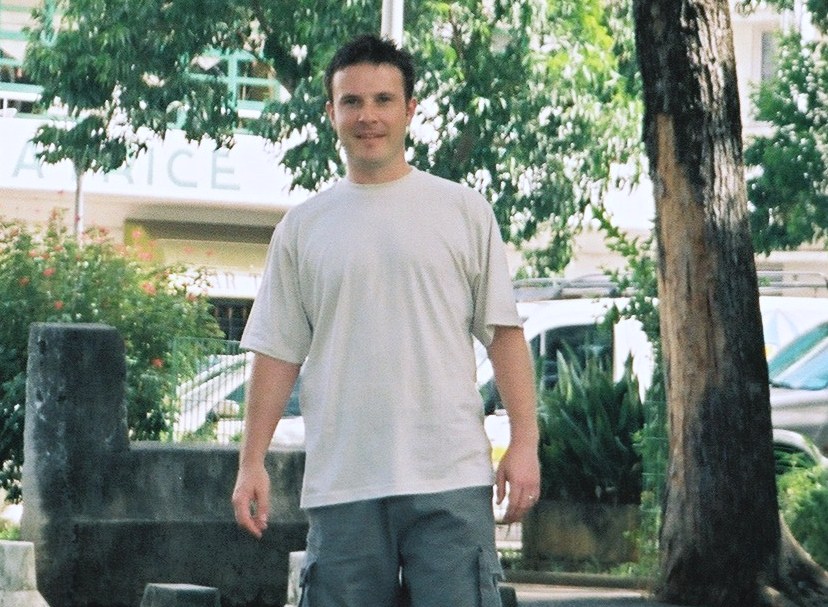ASK & DISCUSS
INDEXHow did you raise money for your last feature film?
10 years, 9 months ago - Vasco de Sousa
For our last film, we used a combination of crowdfunding, sales of related products (like a production journal), and basically using as few people as possible and doing the work we couldn't afford minimum wage for ourselves.
(I acted, directed, wrote, did my own stunts, designed websites and edited and did a lot of the crewing not because I'm vain, but because we couldn't afford to hire anyone who had more experience than me.)
For the next one, I've been looking at public funding bodies, but I see we're competing against the likes of Aardman and Working Title if I want any real development money.
I'm looking into EIS, but I don't know any rich UK investors (and we're competing against Disney there.)
We're still filling out the forms for those kinds of funding of course, just want to know what else is available.
I just wondered if anyone had modestly budgeted professional films (between 300k and 5m) without any big names involved that they had funded and can tell me more about.
Thanks,
Vasco
Only members can post or respond to topics. LOGIN
Not a member of SP? JOIN or FIND OUT MORE
10 years, 9 months ago - Simon Moorhead
As another producer who has dealt with both EIS, SEIS and FPTC's for films, I would agree with Paddy - neither is difficult.
In terms of the FPTC- be aware that not only does your film have to qualify but there is every chance HMRC will audit your books. If they choose to inspect your records they will be looking to make sure that all technicians that you have employed fulfil the criteria that HMRC set out for Film technicians in terms of being self - employed or PAYE. Even if you employ someone for one day, HMRC will expect you to pay NI for that individual if they are not self-employed in the eyes of HMRC.
In terms of EIS / SEIS - it is worth remembering that you are inviting an investor to finance a business that has to comply with the guidelines set out by HMRC. This means it has be viable for at least three years. From my experience with investors you also very much have to demonstrate through your business plan how, not only are you able to return their investment, but to pay them a dividend also. As a general rule of thumb, in a high risk venture such as film, it would be expected that the return will be around 10 x the investment. So if you are looking to raise £500k then you should have a business plan that shows how you intend to recoup and return £5m+.
10 years, 9 months ago - Paddy Robinson-Griffin
Just an aside - I've set up both EIS and FPTC's for films personally, neither is difficult, but both have constraints and those constraints are important. Certain activities (promotional spend, for instance) will not be eligible for tax credits, and could get you into trouble with an EIS (not sure about SEIS, but presume the constraints are similar).
I'd go further than Marlom with the tax credit as contingency MO though - the FPTC is so core to every production that it's commonplace for it to be cashflowed as a part of core expenditure.
All film finance is UGLY though, which is why getting a financial producer attached to shield you from it is a good idea. I know some horror stories which I can't post in public, but seriously it's such a stinky area I don't get involved any more (I just spend the money!!) :)
10 years, 9 months ago - Vasco de Sousa
Thank you both for trying to be helpful.
Disney did in fact benefit from EIS or something similar for the next Pirates of the Caribbean film. http://www.theguardian.com/film/2014/oct/01/disney-tax-break-hmrc-british-films
I note a quote by Edgar Wright saying "While the tax break is good for Hollywood films shooting here, it’s probably not that great for British films shooting in the UK. Some middle-to-low-budget films are going to find themselves without crew because all the American films are shooting here.”
Middle to low budget in this case is like 10 million.
10 years, 9 months ago - Simon Moorhead
In terms of FPTC Vasco - this might be useful to you.
https://www.bectu.org.uk/advice-resources/library/978
10 years, 9 months ago - Lee 'Wozy' Warren
If you really want to direct, a good place to start would be to get your script the best it can be and then do a crowd funding for £5k - £10k. Then do the same later in the year for £50k. Then next year for £100k - 200k through investors after showing them your skills behind the camera. It's a step process that needs confidence with self and from others.
Also, I would recommend moving away from doing 'everything' yourself. Filmmaking is a collaborative process and nothing lowers the expectation that you can't work with others than by doing it all yourself.
Directing and producing are skills that take years to develop in and of themselves. Trying to add other skills, like writer, camera operator, editor, stunt man and actor, really don't help. I know that sometimes it's a necessity to do a lot of things yourself, but it'll hurt more than help in the long term. Resist the urge. In fact, don't do the project if you can't get a reasonable crew together.
Be professional. Consider what an investor who think. What would you think if you were to put up your own money, say £5k into a film that someone else was making.
I've said it a thousand times here on Shooters and elsewhere too. Develop your script to be amazing. That's the initial key to success.
10 years, 9 months ago - Paddy Robinson-Griffin
Good point from Simon regarding PAYE - just worth mentioning in case it interests anyone.
You may have a spark who's done lots of domestic and short term event electrics, a heap of short films, have been self employed on all of them... but HMRC don't accept their self employed status and hit you up with an NI bill. Pretty much no position with 'assistant' in it can be self employed. No production coordinator, third AD's, focus pullers/AC's, most art dept roles, etc can be, without specific advance dispensation from HMRC ('Lorimer letter', which has to be checked on a case by case basis). You can't accept somebody's word for it, you can't hope to get seat with it, HMRC are explicit about it.
This causes much wailing and protestation and people telling you you're wrong and that it isn't fair - it's just how it is for engagements over 7 days (and you need most roles on a feature for more than 7 days!). It also means you must set up a formal payroll, real time reporting, holiday pay, comply with pension provision regs, etc. It's a whole person's worth of work full time, plus a payroll company most likely.
I only mention this because it's both true and important and HMRC will come asking, and if you suddenly face a bill for a few grand extra, they don't take ignorance as an excuse and can apply fines... And dig deeper into your finances. This isn't posted to scare people, it's a heads-up to hopefully prevent you from getting caught out!
10 years, 9 months ago - Tony Oldham
You could apply to funding bodies such as BFI and Creative England funding as a great starting point. My guess is that they'll also want to be certain that your production company would be capable of delivering on standard which would mean you might need to co-produce with another more experienced production company.
It's great to make films at the higher level, but I would also say to continue doing what you're doing. It can take years to get films through on higher budgets and it does come at a cost of adapting the film to suit all interested party's. Lots of compromises (but often for the best).
Also try and take the project from distributor to distributor to seek potential funding. EIS and various tax schemes can be implemented once a major investor is interested - but let's be honest, few films make money without the backing of a major distributor to get behind the film.
Not sure on the currency tax law, but tax credits used to deliver on about 20% of budget, and EIS schemes from my experience were never that popular with an investor, especially in films.
That leaves a filmmaker as an Independent seeking to make that breakthrough film on a restricted budget. I still think that's a great way to go and you have total freedom and so long as you do your paperwork right and correct (get all your contracts, rights, permissions etc covered), if it's a strong project, then it should sell.
BFI, Media Europe, Creative England, (Film London for Micro Budget)
Distributor and Co-productions for additional funds
Crowdfunding
Best of Luck
10 years, 9 months ago - Lee 'Wozy' Warren
This is why you need an experienced producer talking to any potential investors!
10 years, 9 months ago - Paddy Robinson-Griffin
Vasco, that's the DCMS Film Production Tax Credit, absolutely distinct from EIS. FPTC's are a VERY important part of UK (and global) film finance, they are rather assumed to be the very minimum you'd be working with.
Regarding Edgar Wright - I like his direction, but he's not known as a financier for a reason - those tax credits are pretty much the only thing that mean we have a UK industry at all.
10 years, 9 months ago - Vasco de Sousa
Thanks everyone for the info on film tax credits, EIS and other clarifications.
10 years, 9 months ago - Paddy Robinson-Griffin
What Lee says. The best way to get access to those investors with money is to find a financier/producer with contacts who will pretty much refactor all the budgets to make sure he can underwrite loan equity with tax credits. EIS is of questionable value as it can be incompatible with some types of investment (Ingenious won't touch it, for instance), and I would be surprised if Disney use EIS.
As above, you're not going to see $5M unless you've delivered profitably at $2M first, and that's going to require a profitable delivery at $500k... As a director, you're not going to take charge of a $5M project, so I suggest you write your script accordingly
10 years, 9 months ago - Marlom Tander
That article isn't about EIS, it's about the Film Tax Credit. http://www.hmrc.gov.uk/manuals/fpcmanual/fpc55000.htm
Of course if you play your cards right you get to benefit from both of them. Anyone talking money with a genuine qualified investor probably needs to know about both of them because the investor certainly will (if they're serious, the one thing they will have read up on is tax treatment).
One way of looking at it - you budget to make and market the movie with EIS. FTR is then a de facto contingency fund.
100K SEIS costs the investor 50K as they get 50K back.
Spend the 100K to make and SELL the movie, everything to budget, and say 80K of that is Core and so qualified for FTR. Get back another 20K, which goes to the investor.
So, "invest 100K in my movie, for a real risk of only 30K, based on ZERO revenue". If total revenues are just 30K, the investor breaks even.
As to Edgar, what a negative person. "While it's great for the crew, who can make some proper pay from Hollywood companies shooting over here, it's bad news for all those UK film makers who can't afford to pay people properly".
Good luck
10 years, 9 months ago - Lee 'Wozy' Warren
The key sources of funding at that level are always going to be private investors. However, there is normally a mix of funds which include pre-sales and tax rebates to name a few.
To make the journey smoother I would recommend getting a producer on board who has already some experience of financing at this level. He will advise what is achievable for the script you have. Also bear in mind that if you intend to direct, then aiming to get $5m in finance is probably not going to happen. Also, if you intend to produce on your own, you'll probably need a bondable line producer who the investors will have confidence in and allow you to get your completion guarantee underwritten.
EIS is also one avenue and you most certainly don't need to be Disney to benefit from it.
I would say that any producer who works in the range you mention isn't about to give up his secrets to success, (whatever success means!!!) He might produce your movie, but he wont give his sources away.
Also, from experience and what I know from others, public funds are notoriously difficult to get and you have to wait a long time to get told "No". I have found it much easier to get decisions out of investors than spending the time filling out reams of forms and jumping through hoops. However, some have had some success, but not many.
But ultimately, it comes back to a great script and a great team with the relevant experience in the level you are aiming to work in.
Hope some of that helps.
10 years, 9 months ago - Lee 'Wozy' Warren
I somehow feel that the quote you hang up above is possibly out of context or unique to the project that EW was working on. I know for a fact that tax breaks can become a reasonable amount and part of the budget on a movie, even more so if the film is UK qualifying. Go talk to any film accountant worth their salt and you'll soon see things with fresh eyes!
7 years, 10 months ago - Vasco de Sousa
Ha, I was going to ask this question again. I rejoined Shooting People after two years, after spending some time writing. (I seriously didn't like the films being made, so I wrote for the short story market, because I found contemporary short stories more to my taste. )
I wanted to go back to filmmaking because it's more social, and because I believe that there are others (filmmakers and audience members) who are also sick of biopics and adaptations.
Anyway, here's a chance for experienced producers to pitch themselves. How did you raise money for your last project? (Don't give us a complete how to, just show us enough magic to prove that you've done it before.)
7 years, 10 months ago - John Lubran
Nice to have you back Vasco. Gotta keep our numbers up from the wilder hills of Wales.
7 years, 10 months ago - Sergio Falchi
Hi to all! Dear Vasco I agree with Lee2Wozy" Warren ...i am going to think about a 5K 10K second short I'd like to direct after a 1.500 K one that did well...the temptation to do something bigger is real but realistically who ever give me real money if I can't prove I am a skilled visionary director? So...considering that paper cost zero all about excellent script, also little thing...is what I am going to present to peers in other roles in a suitcase within the next weeks(perhaps in the UK) along with my first short.
Crowfunding hope could be a great way for money from 0 to 50.000 K...isn't it?
i am not a filmmaker, I mean I can write and I can direct but cannot edit (want to be next to editor but I am not a REAL editor) I know what I want for lighting BUT I need the help and art and craft of a gaffer, as well I frame and set camera movements and positions BUT I need to talk with an extra eye before deciding even if I have everything clear in my mind, so that I see what happened when DOP operate but I look at what happens not DO it by myself because i am not skilled for operating and dircting actors...hope that feel as a classical director and not a filmmaker is not a minus...I know exactly what I want but i am not able to do everything by myself and don't even want to...lead and put toghether what isin my mind exactly on the screen but collaborating to fond best way and even accept with a smile if a DOP framing is better than my previously planned one (it could happen...)
If anyone here is interested i'd happy to share the short with you guys on a PM. A sundance winners considered it "A fucking beautiful movie" and want to help...but it's (I know very well) just a primal thing...
7 years, 10 months ago - Vasco de Sousa
Sergio,
I understand that some Europeans use dots where English speakers use commas. I found it really annoying when doing spreadsheets.
I remember when I was at Pima Community College, and I told my instructor that I planned to make a film for 5k or 50k. He said I should budget at least 500k, because realistically nanobudget films don't make their money back and you have nothing to live on.
I think we listen too much to the likes of Dov Simens. If you check out Dov's pages on social media, you are recommended tarot cards and other hocus pocus. Come on, the guys who founded Youtube didn't start with a 5 thousand dollar "short" website. The guys at Facebook didn't prove themselves before approaching venture capitalists. Architects don't build a microbudget skyscraper and then go to building firms after they prove it could be done without money.
Content creators shouldn't be so cheap with their own talents.
That's why the techies treat us like idiots, because we act stupid, and approach friends for favours rather than investment.
(I made a cheap film, in my inlaw's house, but it was a silly thing to do, really.)
I'm still waiting to see if there are any professional producers left on this network, or if we're all too shy and insecure to approach investors.







